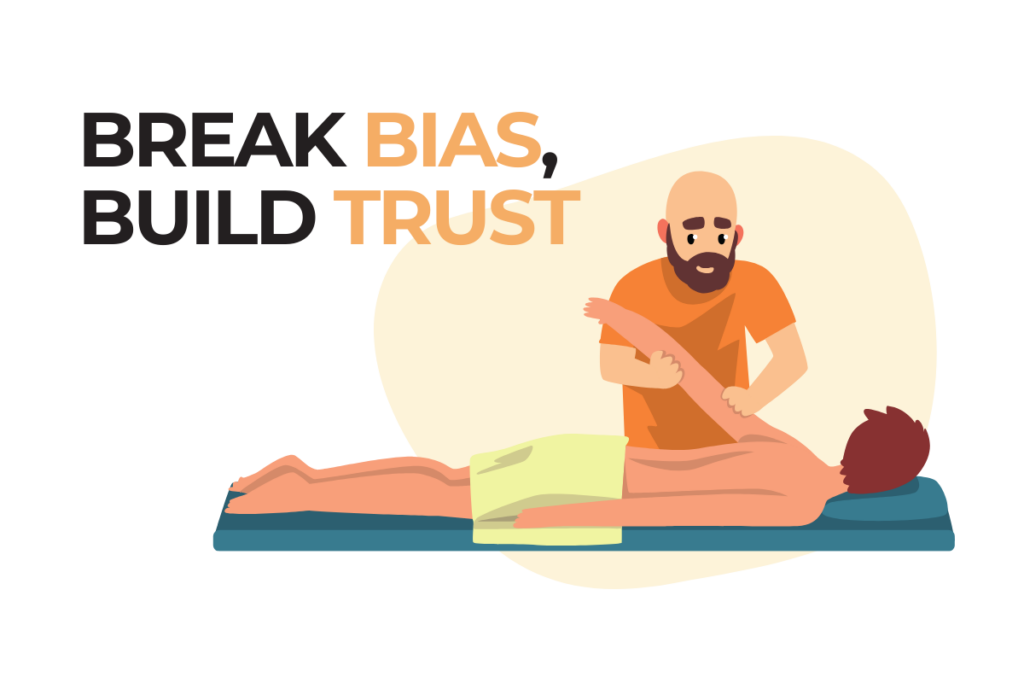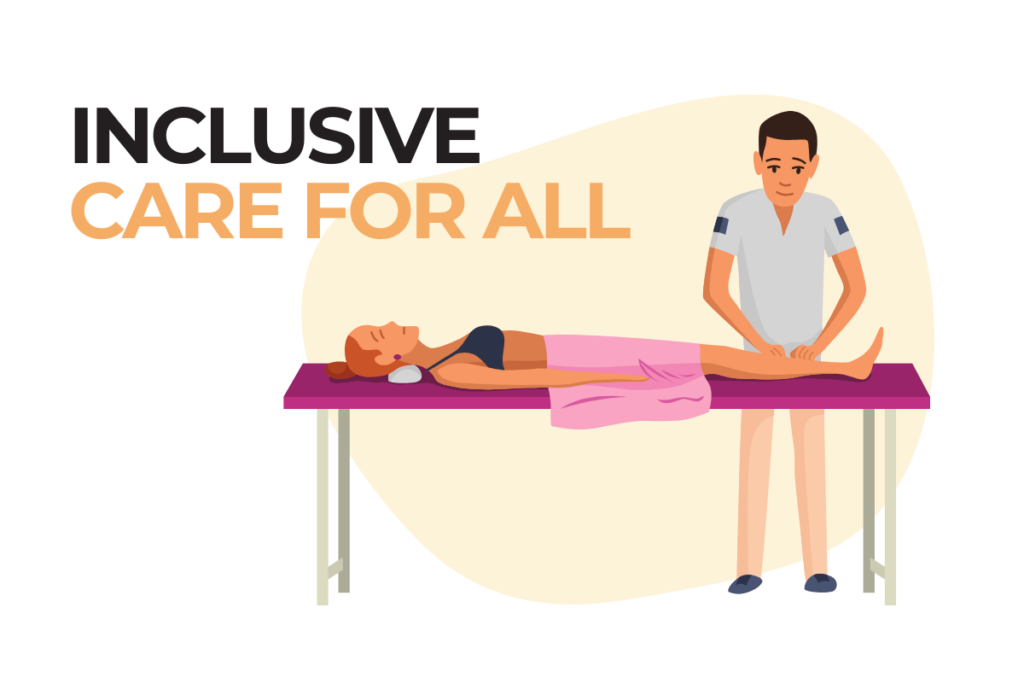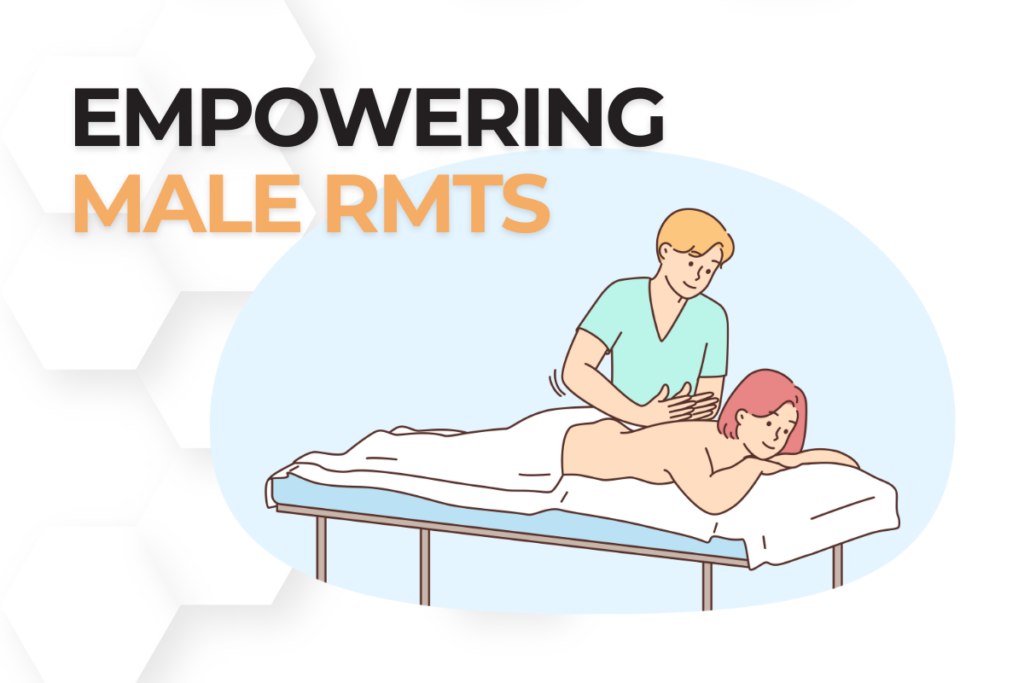Creating a Culture of Inclusivity: Addressing Male RMT Stigma for a Stronger, More Welcoming Clinic
Creating an inclusive massage therapy culture means addressing biases that affect client bookings and team morale. Male RMT stigma remains a nuanced challenge in the industry, often stemming from client misconceptions and societal stereotypes. This issue, if unaddressed, can inadvertently create a less welcoming environment, discourage bookings, and even affect the overall clinic atmosphere.
Building a clinic that embraces inclusivity means educating clients, promoting unbiased perspectives in marketing, and supporting all therapists equally. When clients understand that skill, professionalism, and experience are valued above all, they are more likely to look past any unconscious biases. A clinic fostering inclusivity builds trust, loyalty, and a positive workplace that attracts top talent and appreciative clients.
Origins of Male RMT Stigma
Historical Gender Roles in Massage Therapy
Societal norms surrounding caregiving have historically shaped massage therapy as a female-dominated field. This long-standing stereotype implies that male practitioners may lack the nurturing qualities clients expect, despite their credentials and dedication to providing quality care.
Persistent Misconceptions and Stereotypes
Male therapists often face unfair assumptions regarding their intentions or abilities. Many clients mistakenly perceive male therapists as less gentle or intuitive, despite male RMTs frequently having extensive experience and training. This misconception can cause clients to miss out on the valuable skills and unique perspectives that male therapists bring to the table.
Client Comfort Levels and Cultural Influences
Cultural norms and personal comfort levels also influence client preferences. For some, misunderstandings about male RMTs or past experiences may lead to an initial reluctance, even when the therapist is highly qualified and professional.

The Impact of Stigma on Male RMTs and Clinic Dynamics
Reduced Client Bookings Due to Male RMT Stigma
Male RMTs may experience fewer bookings compared to their female colleagues, which can result in an uneven workload distribution. This imbalance can impact clinic efficiency and reduce job satisfaction for male therapists, as they may feel sidelined or underutilized.
Building Client Trust and Retention
Establishing rapport with clients can be challenging for all RMTs. Even when clients are satisfied with their session, they may hesitate to rebook, making it harder for male therapists to build long-term client relationships, which are essential for retention.
Influence on Staff Morale and Retention Rates
Facing stigma can negatively impact male RMT morale, making them feel undervalued. Over time, this can increase turnover rates. A clinic that fosters inclusivity and values every therapist’s contributions creates a more cohesive, loyal team.
Strategies to Address Male RMT Stigma in Your Clinic
Educate Clients on Skills and Professional Standards
Providing clients with information about each therapist’s qualifications and expertise helps dispel stereotypes. Showcasing each therapist’s background, specialties, and certifications emphasizes professionalism and encourages clients to choose based on skill rather than gender.
Inclusive Marketing and Communications
Feature male therapists in promotional materials and on social media to normalize their presence. Using inclusive language and diverse imagery reinforces a message that your clinic values skill and experience, not gender.
Understand & Respect Client Preferences
Allowing clients to choose the gender of their therapist during booking accommodates a variety of personal reasons, such as cultural, religious, or comfort-based preferences. By offering this choice, clinics demonstrate respect for individual needs and values, fostering an inclusive and supportive environment.
This approach also ensures equitable opportunities for all therapists, reflecting the clinic’s commitment to honoring diverse client backgrounds and personal boundaries.
Open Feedback Channels
Providing clients with opportunities for anonymous feedback fosters transparency and helps address potential biases. When clients feel their concerns are heard, they are more likely to engage in open dialogue, which can reduce stigma over time.
Supporting the Growth of Male RMTs Through Professional Development
Training in Communication and Client Relations
Equip all RMTs with communication skills that enhance rapport-building and client comfort. Training in empathetic listening and handling concerns can help male therapists establish strong, trust-based relationships with clients.
Mentorship and Career Development Opportunities
Mentorship programs connect male RMTs with seasoned practitioners who can provide guidance on overcoming stigma and navigating client relationships. These connections offer valuable insights and support, encouraging professional growth and resilience.
Fostering a Supportive Workplace Culture
Engaging in regular team-building and discussions on inclusivity helps all staff feel valued and heard. By cultivating a respectful and inclusive work environment, clinics not only retain quality therapists but also create a setting where every staff member is motivated to contribute.

Real-Life Success Stories and Inclusive Clinic Initiatives
Success Stories of Male RMTs
Sharing narratives of male RMTs who have successfully built loyal client bases reinforces that professionalism and skill are the cornerstones of client satisfaction. These stories demonstrate the real impact male therapists can make, encouraging a more open-minded approach.
Inclusivity Initiatives at Your Clinic
Highlighting efforts, such as featuring diverse staff on your website and creating accessible feedback channels, reinforces your clinic’s commitment to inclusivity. These examples inspire both clients and other clinics to recognize and appreciate diversity within the industry.
Embracing Diversity: A Positive Path for Massage Therapy
Addressing the stigma against male registered massage therapists (RMTs) goes beyond simply accommodating client preferences; it’s about creating a culture of genuine inclusivity and respect within your clinic. By actively fostering an environment that values diversity, you send a powerful message to clients, staff, and the broader community: that your clinic prioritizes skill, professionalism, and individual contributions over outdated biases. Investing in each therapist’s growth—regardless of gender—strengthens client relationships by enabling clients to experience the full spectrum of expertise and perspectives available in your clinic. When clients see that every therapist is valued and supported, their trust in your clinic deepens, enhancing loyalty and encouraging word-of-mouth recommendations.
This approach not only builds a welcoming and cohesive team but also positions your clinic as a leader in setting progressive standards within the massage therapy field. Clinics that champion diversity foster a work environment where all therapists are motivated to excel, contribute unique skills, and pursue their career aspirations without limitations.
Creating such an inclusive space also increases staff retention and attracts top talent, which enhances the quality of service clients receive. Ultimately, a diverse and supportive clinic environment positively impacts the overall client experience, establishing your clinic as a trusted community resource where every client feels comfortable and every therapist has the opportunity to thrive. By embracing diversity, you make a lasting, positive impact that sets your clinic apart, driving growth and fostering a sense of belonging that extends far beyond the treatment room.
FAQs
Emphasize the expertise and credentials of all therapists, presenting qualifications in a way that highlights skill over gender. Display therapist profiles, including certifications and specialties, both in-clinic and online to reinforce professionalism.
Feature male RMTs in marketing materials, use inclusive language, and create messaging that focuses on the collective skill of your team. Acknowledge diverse client needs, emphasizing your clinic’s commitment to providing quality care for everyone.
Offer training in communication skills and client rapport-building. Encourage male RMTs to take a proactive approach to addressing client concerns and to build trust through professionalism and effective communication.
Provide an option for anonymous feedback through online surveys or in-clinic comment boxes. Regularly review feedback to identify trends and opportunities for improvement, and address concerns transparently to show that all client voices are valued.
By fostering an inclusive, supportive environment that actively challenges stigma, you create a clinic where clients and therapists alike can thrive. When clients feel that all therapists are valued for their skill and professionalism, they’re more likely to trust your team and return, ensuring the long-term success of your practic


